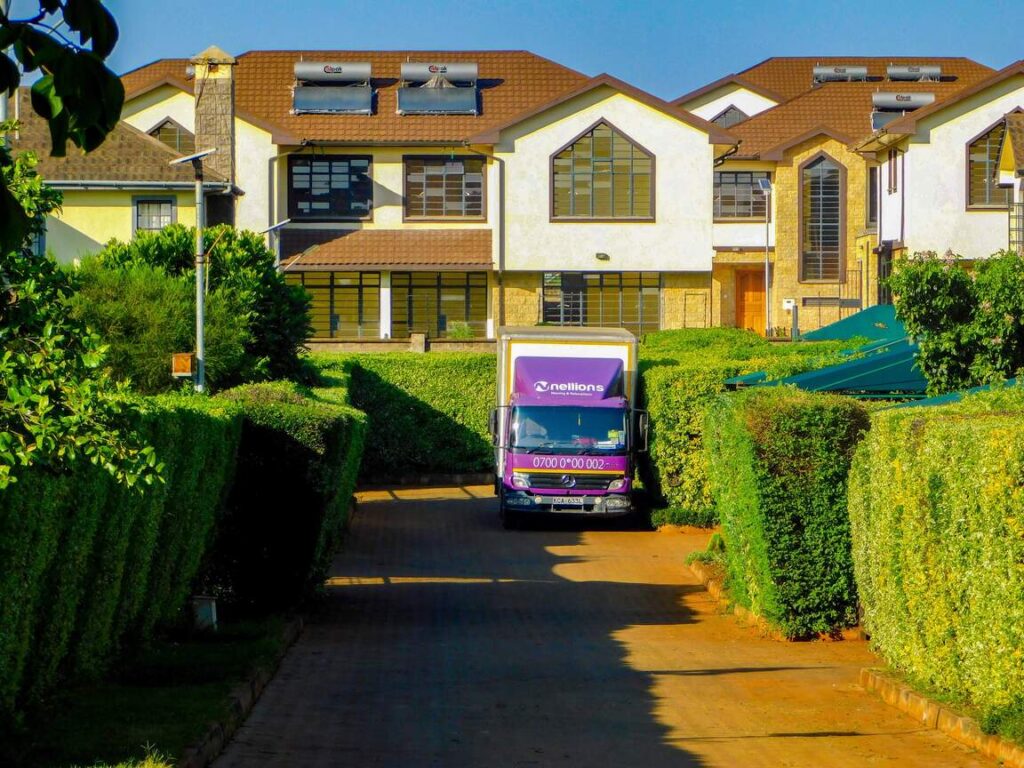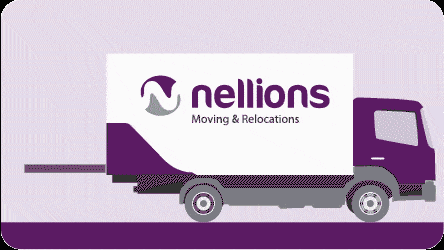Relocating to work abroad can be an exciting and life-changing decision. However, before you pack your luggage and start moving on this new adventure, it’s very critical not to forget the numerous factors so you can form your experience.. Relocating for work overseas requires careful planning and preparation to ensure a smooth transition and maximize your chances of success in a foreign environment. Language and customs.
Understanding the local way of life will help you adapt more efficiently and avoid potential cultural pitfalls. Additionally, consider your chosen country’s cost of living, job prospects, and work culture. Are there opportunities aligned with your skills and career goals? Will the remuneration be sufficient to support your lifestyle?
By thoroughly evaluating these critical considerations before relocating abroad, you will be better equipped to make informed decisions and ensure a successful and fulfilling experience in your new work environment.

1. Work Permit and Visa
Research the specific requirements for obtaining a nice work permit and visa in your destination country. Understand the application process, eligibility criteria, and any associated costs. Ensure you have the necessary documents, such as educational certificates, employment contracts, and a valid passport.
Navigating the bureaucratic labyrinth of visas and work permits can seem daunting, but fear not! With some research and preparation, you’ll be well on your way to obtaining the legal documentation for your overseas adventure. Start by delving into the specific requirements of your chosen destination country.
Each place has its own set of rules and regulations, so it’s crucial to familiarize yourself with them. The application process may involve gathering documents like educational certificates, proof of employment, and a valid passport. Some countries might require additional paperwork, such as health checks or criminal record certificates. Make sure you double-test the validity of your passport and apply for any important renewals well earlier.
It’s also crucial to factor in the costs associated with the application, which can range from country to country
2. Job Opportunities
Explore the job market in your destination country when relocating for work. Research the demand for your skills and qualifications, the employment prospects, and the potential salary range. Look for industries and companies that align with your career goals, and consider networking with professionals already working in your field of interest.
Before taking the plunge, assessing the job market in your destination country is crucial. Start by researching the demand for your specific skills and qualifications. Are there opportunities in your field? What are the employment prospects like? Consider reaching out to professionals already working in your industry of interest. Networking can provide invaluable insights and potentially open doors to job opportunities.
Take the time to investigate industries and companies that align with your career goals. Are there sectors experiencing growth and offering promising prospects? Explore online job portals and professional networks to gauge the demand for your expertise. Additionally, consider the potential salary range for your position. Factor in the cost of living in your new country to ensure the remuneration is sufficient to support your desired lifestyle.
3. Cost of Living
Analyze the cost of living in your prospective destination. Consider housing, transportation, healthcare, taxes, and daily expenses when relocating for work. Compare these costs to the salary you expect to earn to determine if it will provide a comfortable standard of living for you and your family.
Crunch those numbers and get a clear picture of your budget in the new country before relocating for work. Remember to account for currency exchange rates that may affect your purchasing power. It’s crucial to balance financial stability and enjoy your time abroad.
4. Cultural Adjustment
Relocating for work to a new country involves adapting to a different culture, language, and social norms. Research the local customs, traditions, and etiquette of your destination country. Understanding these nuances will help you navigate social situations and avoid unintentional cultural faux pas. Embrace the opportunity to learn the local language or some basic phrases to facilitate communication and show respect to the locals.
Consider taking language classes or joining language exchange programs to improve your language skills and make new friends. Keep an open mind and be patient as you adjust to the new culture. Remember, it’s a journey of growth and learning.
5. Healthcare and Insurance
Assessing the healthcare system and availability of medical facilities in your destination country is of utmost importance when relocating for work. You want to ensure that you have access to quality healthcare when needed. Research the local healthcare system, including hospitals, clinics, and doctors, to understand the level of care provided.
Review your current health insurance policy to determine if it covers you abroad. Some insurance plans offer international coverage, while others may require an additional rider or even a separate international health insurance policy. Familiarize yourself with the coverage details, including emergency medical evacuation and repatriation, to guarantee adequate protection during your stay.
Awareness of mandatory health insurance requirements in your new country is also crucial. Certain nations may require residents to have local health insurance coverage, and failing to comply with these regulations can lead to penalties or limitations in accessing healthcare services. Take the time to research and understand the local laws regarding healthcare and insurance.
6. Housing and Accommodation
One of the fundamental aspects of relocating abroad is finding suitable housing. Begin by researching the housing options available in your destination country. Consider factors such as rental prices, proximity to your workplace, safety, and access to amenities like grocery stores, public transportation, and recreational facilities.
Decide on whether renting or buying a property is more practical for your long-term plans. Renting provides flexibility, especially if you’re uncertain about your length of stay or prefer not to commit to a property immediately. On the other hand, purchasing a home can offer stability and potentially be a sound investment. Still, it requires careful consideration of your financial situation and the local real estate market.
To find housing, explore online listings, consult local real estate agents, or join expat communities and forums. These resources can provide valuable insights and connect you with individuals with firsthand housing experience in your chosen destination.

7. Education and Family
If you’re planning to shift abroad with your family, ensuring a smooth transition for your children is paramount. One crucial aspect is the education system and schools in your destination country. Take the time to investigate the options available to you thoroughly.
Understand the enrollment process, curriculum, and language of instruction in schools. Consider the availability and quality of schools that align with your children’s needs and educational goals. Are there international schools or local schools that offer bilingual programs?
Do they provide the necessary support for expatriate students? Researching and visiting schools beforehand can help you make an informed decision and ensure a seamless education transition for your children.
8. Financial Planning
Develop a comprehensive financial plan for your shift abroad. It’s not just about the exciting new experiences and exotic cuisines your wallet needs attention to. Start by considering the costs of relocating for work. Calculate travel expenses, shipping of your beloved belongings, and those initial setup costs that can catch you off guard.
Look at your financial situation and see if you’re prepared for this big step. Assess your savings, income, and potential expenses in the new country. Don’t forget to explore banking options in your destination. You’ll want to set up a local bank account to manage your finances smoothly and avoid hefty transaction fees. Remember, a solid financial plan will give you the peace of mind to fully enjoy your new adventure abroad. So, prepare those spreadsheets, crunch the numbers, and ensure your wallet is ready to join you on this exciting journey.
9. Social Support and Networks
Establishing connections and networks in your new country is vital for a smooth transition. Reach out to expatriate communities, professional organizations, and social groups that can provide support and guidance. These communities can offer valuable insights into local culture, help you navigate bureaucratic processes, and introduce you to like-minded individuals with similar experiences.
Networking doesn’t just enhance your social life; it can also boost your career prospects. Attend professional events, join industry-specific groups, and build relationships with local professionals. Networking opens doors to potential job opportunities, mentorships, and valuable advice on succeeding in your new work environment.
To find expatriate communities and professional organizations, utilize online platforms and social media groups. These platforms are treasure troves of information, connecting you with individuals who have already gone through similar experiences.
Don’t hesitate to reach out, ask questions, and seek guidance. The knowledge and support gained through these networks will prove invaluable in settling into your new home.
10. Safety and Security
While relocating to a new country is an adventure, it’s crucial to prioritize your safety and security. Before shifting, thoroughly research the safety situation in your destination country. Understand local laws, crime rates, and potential risks. Government websites, travel advisories, and expatriate forums can provide valuable insights into the safety landscape of your chosen location.
Familiarize yourself with emergency contacts, including local police, medical facilities, and hotlines. These numbers should be saved on your phone and easily accessible in emergencies.
Additionally, it’s wise to register with your home country’s nearest embassy or consulate. This ensures that your government is aware of your presence in the foreign country and can provide assistance during critical situations.
To enhance your safety, take precautions such as safeguarding important documents, avoiding risky areas, and staying informed about local customs and behaviors. Investing in comprehensive health and travel insurance to protect yourself against unforeseen circumstances is also a good idea.
Communication with loved ones back home is equally crucial for your sense of security. Share your contact information and address with family and friends, and establish a regular communication routine. This connection will provide emotional support and be a safety net during your time abroad.
Remember, knowledge is the power to ensure your safety and security. Stay informed about the current events and potential risks in your destination country. Utilize resources such as local news sources, embassy websites, and official government websites for up-to-date information.
Conclusion
Relocating for work can be exciting, but it requires careful consideration. Before deciding to shift overseas, there are several key factors to consider. Firstly, thoroughly research the destination country’s culture, language, and local customs to ensure a smooth transition.
Secondly, examine the cost of dwelling, such as housing, healthcare, and taxes, to decide if it aligns together with your monetary goals. Moreover, don’t forget the effect on your personal lifestyle, inclusive of family, pals, and social support systems.
Finally, weigh the potential career benefits, such as job opportunities, professional growth, and networking prospects. By thoroughly assessing these considerations, you can make an informed decision and embark on a successful international work experience.


